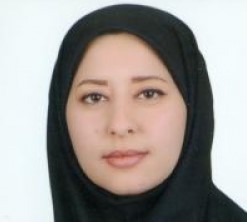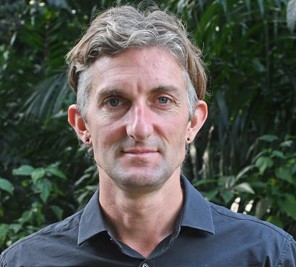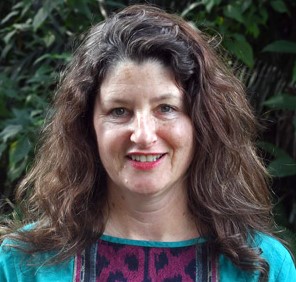Collection
Collection: Forests sustaining agriculture: the contribution of tree-based ecosystem services to food production in multi-functional landscapes
- Submission status
- Open
- Open for submission from
- 31 October 2023
- Submission deadline
- 30 September 2024
Forests provide a range of services and disservices to food production that are conceptually well established. The empirical evidence for these contributions has been building over time, but there are still many gaps and limited understanding of how these contributions differ by context and how they interact with each other. Most prior studies have explored the contribution of a single ecosystem service and been conducted at the farm scale. For example, there is a growing literature on the role of forests in providing pollination services for crops at the plot-level, but forests may also sustain productivity in other ways.
We are interested in studies that examine forest-based ecosystem services and their contributions to food production including pollination, pest control, regulation of microclimate (by influencing temperature and water balance), nutritional subsidies for grazing animals, soil nutrient cycling and hydrological services. We welcome studies that extend beyond single ecosystem service provision to consider bundles of services provided by forests at broader landscape scales.
This collection aims to strengthen the evidence base related to the forest-food nexus and reveal the multitude of pathways by which forests can support food systems through improved agricultural yields and performance. We aim to bring together papers that are multidisciplinary from various fields including landscape ecology, soil sciences, conservation, agronomy, and international forestry. In addition, we are interested to see studies from different types of forest-food systems including silvopastoral, agroforestry, forest plantations, forest-adjacent food production systems, as well as the contributions of trees and forests within the landscape to spatially distinct food production systems. It will also address United Nations Sustainable Development Goals 1: No Poverty, 2: Zero Hunger, 3: Good Health & Well-Being, 6: Clean Water and Sanitation, and 15: Life on Land.
Students and Early Career Researchers are encouraged to submit to this collection.
Pre-submission enquiries are welcome.
Keep up with the latest Landscape Ecology content by signing up for Journal Alerts today!
Editors
-
Terence Sunderland
Professor in the Faculty of Forestry at the University of British Columbia focusing on the biological and human dimensions of the sustainable management and utilization of tropical forests, leads the Sunderland Lab at UBC whose research is focused on applied research, biodiversity, conservation, sustainable resource management, and linkages to levering policy influence. He was previously a Senior/Principal Scientist at the Centre for International Forestry Research (CIFOR), Indonesia, where he coordinated CIFOR’s work on forests and food security, biodiversity conservation and integrated landscape management.
-
Sandra Luque
Landscape Ecologist, Dr. Luque graduated from Rutgers (USA) and holds a HDR from France. Currently she is Research Director at INRAE UMR TETIS, Montpellier. Dr. Luque is a former NASA EOS Fellow and was elected Vice President for the IALE for nine years. At present, She serves as Chair of the IUFRO Forest Environment Division, board member of INTECOL and Chair of the Science Committee for IGU-GFE commission on Geography for Future Earth. Dr. Luque is also Associate Editor for Landscape Ecology.
-
Sima Fakheran Esfahani
President of IALE Iran—national chapter of the International Association for Landscape Ecology—Prof. Dr. Fakheran Esfahani is currently a visiting Associate Professor in the Faculty of Forestry at the University of British Columbia, a member of the Sunderland Lab at UBC, and an Associate Professor of Environmental Sciences at Isfahan University of Technology, Iran. Her research interests include monitoring landscape pattern change and its impacts on biodiversity, ecological impacts of road networks, corridor design, climate change, and conservation planning.
-
James Reed
Scientist in the research theme “Sustainable Landscapes and Food Systems” at the Center for International Forestry Research-World Agroforestry Center (CIFOR-ICRAF) in Bogor, Indonesia, Dr. Reed is interested in inter- and transdisciplinary research approaches that attempt to better understand the dynamics and potential synergies and trade-offs within tropical social-ecological systems. He obtained his PhD from the Lancaster Environment Centre at Lancaster University, UK.
-
Amy Ickowitz
Senior Scientist at the Center for International Forestry Research-World Agroforestry Center (CIFOR-ICRAF), Dr. Ickowitz is a development and natural resource economist by training holding a PhD in Economics from the University of California, Riverside. She has led and contributed to many multi-disciplinary research projects over the last decade that investigate the links between diets and the natural environment in tropical contexts. Dr. Ickowitz also works in the area of One Health, particularly on the links between tropical forest environments and human health outcomes. Most of her work has focused on sub-Saharan Africa and Indonesia.






